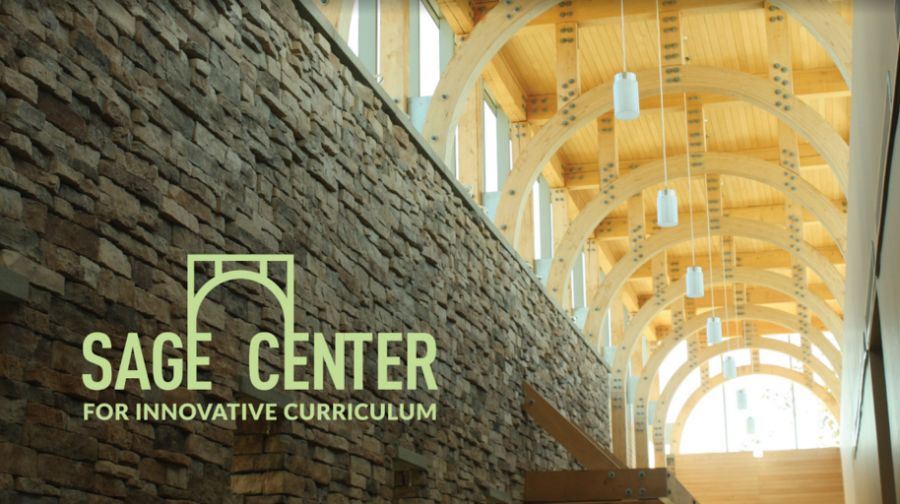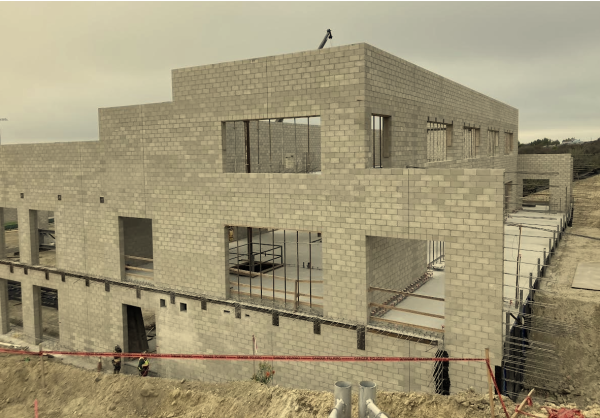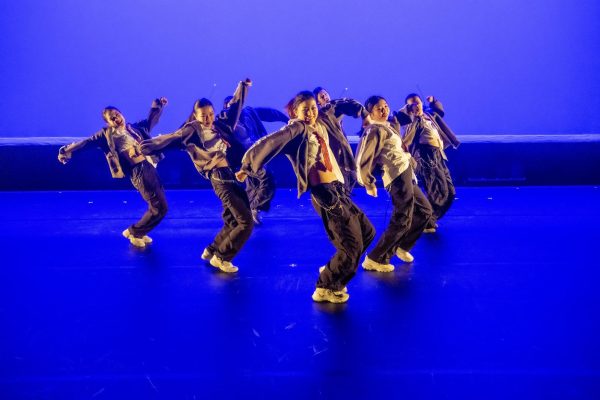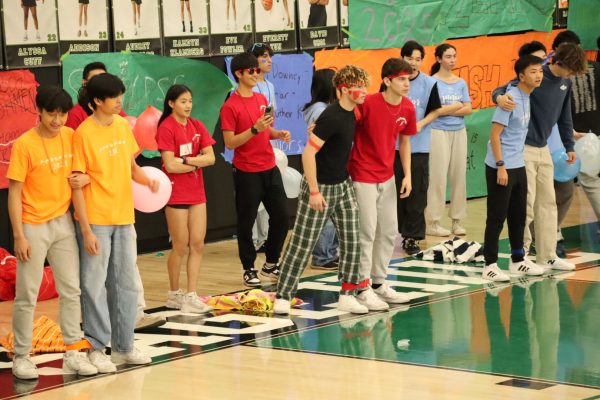What is Sage Center?
“The Sage Center team supports educators as they integrate our core competencies throughout the curriculum and student experience, utilizing innovative tools and resources. The Sage Center guides members of our community as they explore their connection to one another and to life beyond the campus, while our students grow into balanced and compassionate global citizens.” – Sage Center Vision
The Sage Center… core competencies…. student experience… these are all familiar phrases. And yet… what exactly is the Sage Center?
“I don’t think that’s an actual thing,” said freshman Jake d’Amico.
“Nobody really knows,” said sophomore Brian Dong.
Clearly, there is much confusion on campus about the Sage Center, ever since its official launch during town meeting on Jan. 10.
Put simply, the Sage Center for Innovative Curriculum is a program which aims to teach students how to apply academic content learned in their classrooms to the real world beyond high school.
“I’m intellectually stimulated when I’m in the classroom learning new things, but sometimes I feel that this new knowledge will not be useful when I enter the workforce,” said junior Nicole Condas.
In the midst of studying a mathematical formula or listening to a history lecture, you too have probably asked yourself at some point, “Why do I need to know this?” or “What does this have to do with anything?”
According to Danae Howe, Sage Center director, who came to Sage from the Westridge School in Pasadena, the answer to these questions is more than just “so you can get into college”.
With the launch of the Sage Center, Howe and her team hope to bridge this disconnect between academic curriculum–information you learn in your daily classes–and the real world–life after Sage.
“You’re getting a ton of information from all of your classes, and we’re here to help you develop the skills that you need to apply the knowledge that you’re getting, and sort through it in a way that makes sense,” Howe said.
For some students, the “real world” may seem like an abstract idea, a far-away time and place irrelevant to high school, but the reality is that college is quickly approaching and students need to be prepared to deal with the challenges of living independently and functioning as part of an adult community.
“When you enter the real world, you’re no longer shielded by your family. You’re in college and you lead an independent life,” said sophomore Charlene Gao.
The five signature programs under the umbrella of the Sage Center–Spring at Sage, Service Learning, Wellness Initiatives, Parent Education, and the Sage Hill Internship Program (SHIP)–aim to give students a taste of what the real world is like while equipping them with the skills to succeed in life after high school.
“Most of what I learned from building an electric guitar was about using trial and error to find what things work and what things don’t,” said sophomore Alice Warden, who participated in the Build Your Own Electric Guitar seminar for Spring at Sage last year.
“A lot of the process was centered around following instructions, but sometimes things break or don’t work properly and I had to find a new solution to the problem. These skills are similar to what is involved in conducting lab experiments and looking for the source of an unexpected outcome.”
Spring at Sage, along with the rest of the signature programs, offers unique opportunities for students to apply their classroom knowledge in new settings, intimately connecting them with diverse cultures and issues of the real world. Though these programs are all pre-existing, the Sage Center adds more intentionality by identifying a clear vision for the future and working with faculty to implement necessary changes.
Sage Hill’s most recent Strategic Plan, developed in 2014, identifies six Core Competencies (known as the 6 C’s) that students should possess in order to thrive in the real world. These 21st century skills are critical thinking, creativity, collaboration, communication, character and cross-cultural competency. The Sage Center aims to achieve its vision by infusing these Core Competencies throughout all parts of the whole student experience.
Students should expect to see the effects of the Sage Center in all aspects of their daily lives, including academics and athletics, says Howe.
“The collaboration between players in a team sport such as soccer or football, learning to communicate well with teammates, thinking critically about strategy–these are 21st century skills,” she said.
The Sage Center team also works actively with the academic department chairs to incorporate the 6 C’s into curriculum. The impact of the Sage Center on academics can already be seen in Stephen Schumacher’s AP World History classes, who were asked to characterize and compare two periods of history based on three of the 6 C’s for the midterm final essay.
In addition, the Sage Center is also responsible for overseeing various efforts aimed at community building, including last November’s community dialogue and recent activities related to the Book in Common.
Though the Book in Common and the Native Guard performance were decided upon before the introduction of the Sage Center, “the topics involved in Native Guard are very much connected to our commitment to diversity and inclusion, equity and justice,” according to Howe.
The Sage Center is currently financed through the operations budget of the school, which is a combination of tuition dollars and annual fund support.
“The school is all-in when it comes to the Sage Center and the purpose of the future fundraising initiative is to insure the Sage Center is part of the life of the School in perpetuity,” Howe said.
“To date we have raised $1 million of a $5 million goal to endow the program which will make sure that future generations will get to experience the great work that the Sage Center will lead.”
Though the Sage Center does have an office–located in room H214–it is not so much a physical place than a school-wide effort to integrate the 6 C’s throughout the signature programs and the entire student experience.







